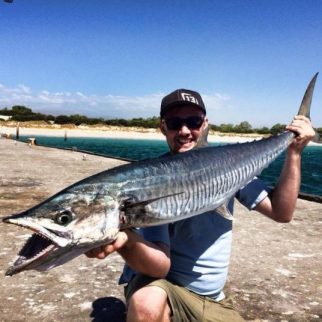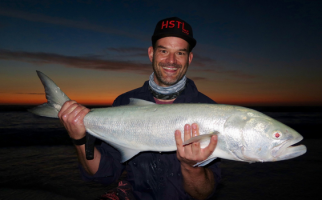Given ongoing public discussion on shark fishing from popular beaches and, in light of some Local Government Authorties stepping out of their jurisdiction seeking to ban some fishing activities, this is Recfishwest’s position:
Recfishwest recognises shore-based fishing for large “trophy” sharks (greater than three metres ) at popular swimming beaches does not meet the community’s expectations of responsible behavior and Recfishwest supports action being taken by the State Government to address this issue.
For more than a decade, various Local Government Authorities have attempted to address these types of issues through ill-conceived, impractical and unenforceable local laws that are often inconsistent with overriding state-based fishing regulations. Recfishwest favours state-based fishing legislation that can address the community’s concern while minimising impacts on fishing for other species and fishing access to beaches that are not popular for swimming.
Recfishwest believes a change to fishing tackle rules will provide the most appropriate approach for managing public concerns around fishing for large sharks from Perth’s popular beaches. Limiting the shore-based use of wire trace to 2mm diameter and 1m length, combined with limiting the size of shore-based hooks to 12/0 and under, would effectively prevent the targeting and landing of large sharks. Importantly, this approach would not impact on fishers targeting other species such as tailor or Spanish mackerel.

Implementing these gear arrangements for shore-based fishers between Two Rocks and the Dawesville Cut would address public expectations associated with responsible fishing at swimming beaches within the metropolitan area.
Recfishwest sees no evidence that fishing activities pose increased risk to public safety and supports research to assess all potential risk posed to beach-users from a broad range of activities along the metropolitan coastline. Such research will better inform the community, local government and policy-makers resulting in science-based management solutions for all relevant risks rather than management simply designed to address unquantified public fears.
